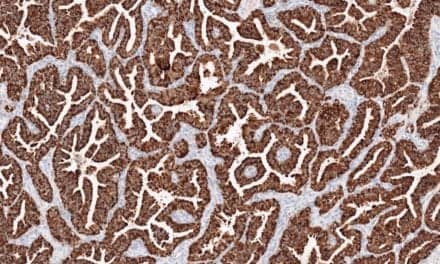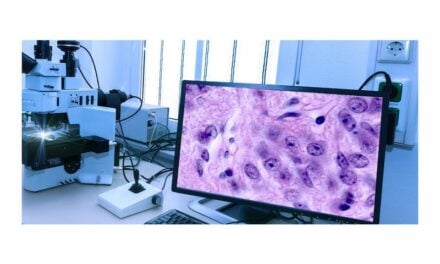The U.S. Food and Drug Administration (FDA) has granted premarket approval to Thermo Fisher Scientific‘s Oncomine Dx Target Test as a companion diagnostic (CDx). CDx will be used to help identify patients with epidermal growth factor receptor (EGFR), Exon20 insertion mutation-positive metastatic non-small cell lung cancer (mNSCLC). These individuals are candidates for EXKIVITY (mobocertinib), a targeted drug developed by Takeda Pharmaceutical Company Limited.
EXKIVITY is a small-molecule tyrosine kinase inhibitor (TKI) designed to selectively target EGFR Exon20 insertion mutations. It received FDA premarket approval on Sept. 15, 2021 for the treatment of adult patients with locally advanced or metastatic non-small cell lung cancer (NSCLC) with EGFR Exon20 insertion mutations. These are patients whose disease has progressed on or after platinum-based chemotherapy. This indication received FDA premarket approval under Accelerated Approval based on overall response rate and duration of response demonstrated in the platinum-pretreated population of the Phase 1/2 trial of EXKIVITY. Continued approval for this indication may be contingent upon verification and description of clinical benefit in a confirmatory trial.
“Without proper and timely diagnoses, patients with EGFR Exon20 insertion mutations don’t have access to therapies that can most effectively treat their disease,” says Dion Warren, vice president and head of U.S. Oncology Business Unit at Takeda Oncology. “We’re pleased to partner with Thermo Fisher to identify and address the unmet needs of patients with this rare cancer.”
Lung cancer is the leading cause of cancer death among both men and women in the U.S. and non-small cell lung cancer accounts for about 80% to 85% of all lung cancer cases. Additionally, EGFR-positive mutations are observed in up to 18% of lung cancer cases in the U.S., offering an opportunity to identify and group patients based on this biomarker. While EGFR mutations are an important therapeutic target, there is a gap in therapies available for EGFR Exon20 insertion mutations, which affects approximately 1-2% of patients with NSCLC.
Conventional PCR methods can miss 50% or more of EGFR Exon20 insertion mutations, thus prompting diagnostic molecular testing with next-generation sequencing (NGS) technology. Testing with NGS is important for early identification and appropriate characterization of tested patients. The FDA premarket approval of the Oncomine will allow for companion testing.
“EXKIVITY offers new hope to previously treated patients with mNSCLC and EGFR Exon20 insertion mutations, who usually do not respond well to other available treatments,” says Garret Hampton, president, Clinical Next-Generation Sequencing and Oncology at Thermo Fisher Scientific. “FDA approval of the Oncomine Dx Target Test as a companion diagnostic for EXKIVITY will allow clinicians to identify key biomarkers in patients who could benefit from this targeted therapy. Working closely with Takeda to scale the clinical adoption of the test as a companion diagnostic for EXKIVITY is an important next step to enabling precision medicine and potentially improving outcomes of lung cancer patients.”





